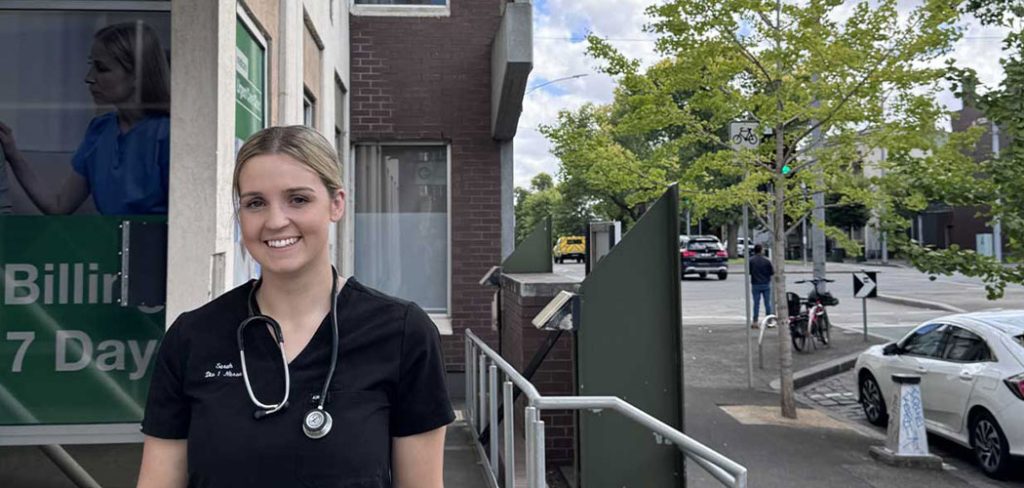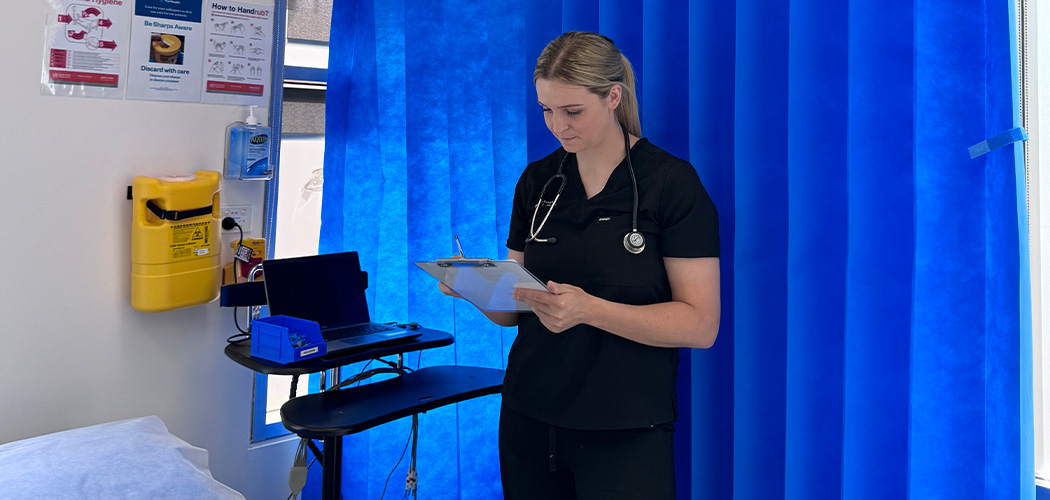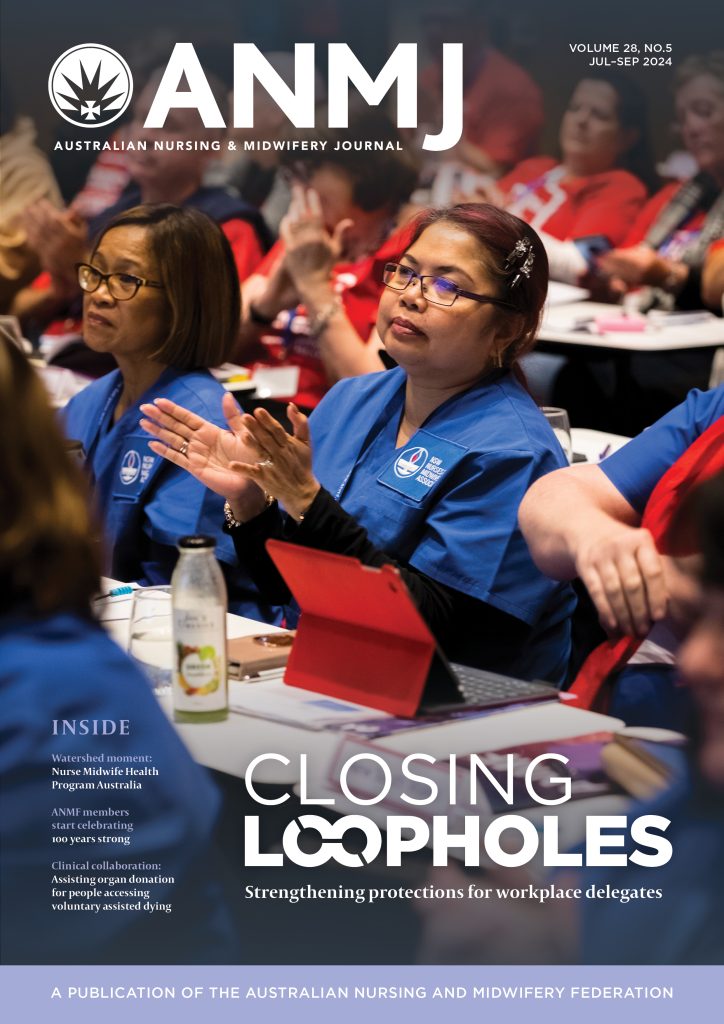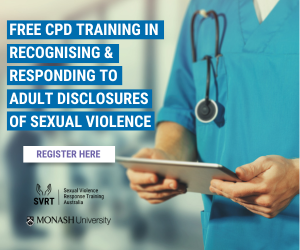Victorian registered nurse Sarah O’Rourke fronts one of nearly 60 Medicare Urgent Care Clinics now running across the country.
Funded by the federal government, the clinics were established with the goal of making it easier for Australians to access urgent care, while simultaneously, diverting people from overcrowded emergency departments and easing pressure on public hospitals.
Sarah is the Team Leader at the Carlton Urgent Care Clinic, which began seeing patients last December. It is open for extended hours, seven days a week, and offers walk-in care that is fully bulk-billed.
After working in and out of EDs for several years, and following the birth of her daughter, she pivoted into primary care and general practice nursing because of its greater flexibility and gentler pace. When she was approached to take up a role with the emerging Medicare Urgent Care Clinics, she jumped at the opportunity.
“The Urgent Care Clinics are really great space for emergency nurses to still get to use their skills and make a difference, without having to deal with the difficult hours of an ED,” she says.

According to the government, since the first Medicare Urgent Care Clinic opened its doors in June 2023, there have been more than 130,000 visits to clinics across the country. Across all clinics, which are based at GP practices and community health centres, the highest number of patients have been children, with about one in three visits from someone under 15.
On the floor in Carlton, Sarah is responsible for triaging patients on arrival, including conducting primary assessments, before determining their eligibility to be treated. For example, if patients are in an acute state, they will be escalated to the nearest emergency department. Likewise, if they aren’t, they can be redirected to a GP practice, which shares the location.
“Sometimes, it’s just a bit of education for these patients, to say ‘Look, what you’ve got, I understand you believe is urgent, but you’re currently stable and we can help you by doing X, Y, Z, or sending you to a GP practice close by’,” says Sarah.
“That’s why these Urgent Care Clinics work really well, being within a GP practice, because these non-urgent patients have somewhere to go on the same day. We’re also able to escalate those patients who have come in thinking that [their issue] isn’t a big deal who are actually quite unstable and need to be in the ED.”
So far, Sarah says patients typically present with three common issues – paediatric ear, nose and throat infections, non-displaced orthopaedic fractures or accidents/traumas, and cuts, lacerations and burns, with nurses on site able to suture and administer IV antibiotics to patients.
One of the main aims of the inner-Melbourne clinic is to take pressure off the nearby Royal Melbourne Hospital. Figures show more than a third of presentations to the hospital are for non-urgent or semi-urgent care – with patients now being able to alternatively present to the new Medicare UCC. On the other hand, examples of presentations that are usually escalated to a more acute setting, include chest pain.
Sarah says working at the clinic has given her more time, autonomy, and the ability to better educate patients. Preliminary data at the Carlton clinic shows that 88% of patients who attended the UCC say they would have otherwise attended the local emergency department. It saw more than 800 patients within its first month of operation.
“We have more time with these patients and we get to educate them more,” says Sarah.
“ED is a great environment, but sometimes, in a big hospital, you can often feel like a bit of a number, because it’s such a big setting. These smaller urgent care clinics have a very family, community oriented vibe about them, and you can develop closer relationships. You work one-one-one with the doctor a lot more than you would in the emergency department, and you don’t have a waiting room full of 40 patients.”
While only in their infancy, Sarah believes UCCs are already making a big difference to patients and that nurses should consider giving it a go.
“You get to make such a more personalised difference art this level, and you’ll be able to upskill as well, you won’t lose your clinical or critical assessment skills here,” says Sarah.
“It’s such a great family environment and patients are really appreciative of your care.”









